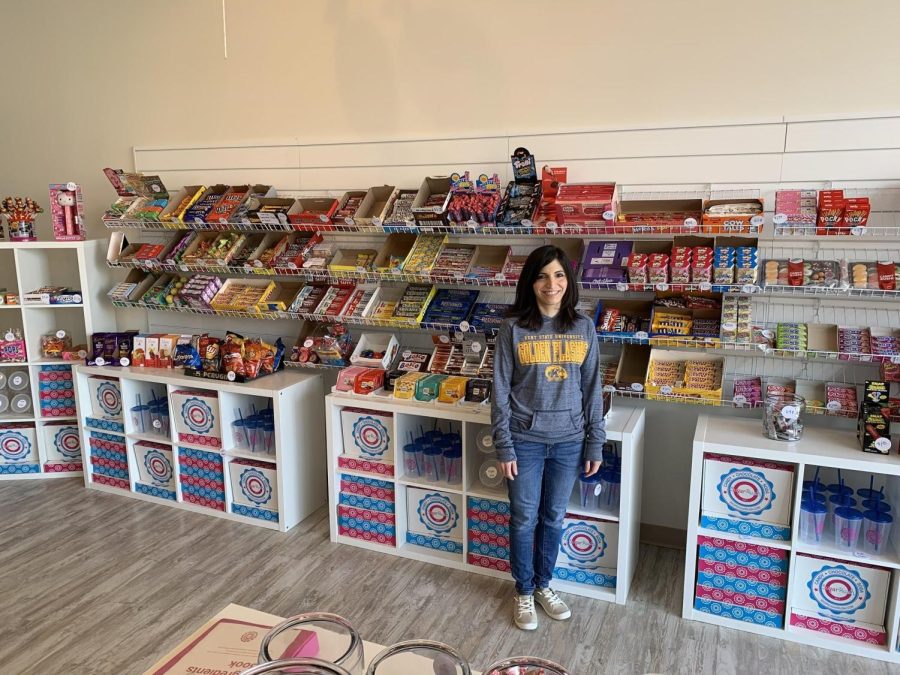Female business owners share meaning of Women’s History Month
Since the 1800s, women have been fighting for their right to vote, equal wages and equal employment opportunities.
During the month of March, women like Susan B. Anthony, who worked to earn women the right to vote, or Malala Yousafzai, who fought for female education in Pakistan, are celebrated.
Women’s History Week started in 1981 when Congress passed a bill dedicating the week of March 7 to the celebration of women. By 1987, Congress had passed more legislation to turn the week of reflection into a month.
“For me, Women’s History Month is an opportunity to look back and thank all of those powerful women who paved the way for today’s powerful women,” said Jessica Ryan, the owner of handmade goods boutique, Handcrafted, in Kent. “Without those powerhouses knocking down the barriers that they did, I would never be in the position I am today.”
In Kent, 12 different businesses in several different industries are owned by women. These women in Kent run businesses in construction, retail, food service, art boutiques, public relations, orthodontics and a dance school. The diverse crowd started the businesses in Kent with hopes for a successful future and to be welcomed by the business community.
Liz Woods worked in retail for several years before opening her own store. She decided to open a candy shop because she loved finding new candy while vacationing with her family. She chose downtown Kent to open Sugar Rush because of its “charm” and “unique shops,” along with its sense of community.
“The Kent community is very supportive and helpful,” Woods said. “There are a number of resources to help business from giving advice to promoting your business.”
Some women business owners face some discrimination when it comes to their trade. According to a 2017 survey from the Pew Research Center, 37 percent of women who say their workplace is mostly male report they have been treated as if they were not competent because of their gender. Only one-in-five women who work mostly with other women say they’ve experienced the same thing, as do 18 percent of women who have an even mix of men and women where they work.
“If we talk about women and men in the workforce, I think they are funneled into different jobs, and this is in part the way we socialize kids and how their identities are gendered,” said Susan Fisk, a sociology professor at Kent. “It’s also in part that women receive more discrimination in some fields than others, so what you see is that women and men end up in different jobs and the jobs held by men tend to pay more.”
Beth Budzar, the owner of Scribbles Coffee Co., has worked her way from running the counter at the coffee shop to being the owner. In her time working in the coffee shop business, she has faced some challenges when it comes to coffee roasting as a woman.
“Coffee roasting is more male-dominated, so I find that I have to work harder to be taken seriously and know my trade,” Budzar said. “When we go to conferences, it is mostly men roasters … I’m motivated in that sense since I know I’m in a male-dominated industry. I need to know every aspect of my business is taken seriously.”
Gwen Rosenberg, owner of popcorn store, Popped!, said she also faced some discrimination when she first started her business. When Popped! opened in 2012, Gwen tried to apply for a business credit card but was denied even though she had great credit. So she was forced to start the business and fund it a different way.
“I applied for a business credit card and my husband and I have great credit, owned a house and cars throughout our married lives and never paid anything late,” Rosenberg said. “The bank said, ‘You don’t have a paycheck, your husband does,’ even though I was the co-signer on everything. I was good enough to sue and come after me as a co-signer but not good enough to get my own credit. I thought this was a real double standard.”
Even without the help of the bank, Rosenberg happily started and continued to run Popped! in downtown Kent. What started off as a love for popcorn turned into a Kent business that has been operating for over seven years.
Budzar is also an apprentice roaster and continues to roast coffee on Saturdays. This helps her better understand her business and know all the ins and outs so she can better position her business in a male-dominated industry.
Jorden Shevel covers business. Contact him at [email protected].



